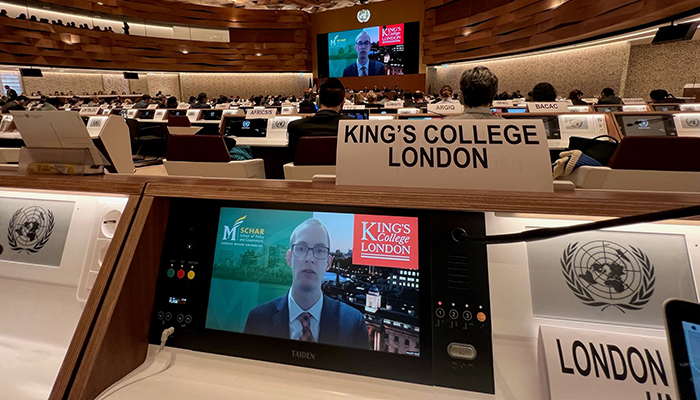In This Story

Schar School biodefense doctoral student Ryan Houser made his international diplomatic debut on Tuesday, November 29, when he delivered a statement to members of the Biological Weapons Convention (BWC) about biosafety and biosecurity—or the lack of it—among the globe’s approximately 70 BSL-4 labs, the places where the world’s deadliest pathogens are studied.
Houser’s recorded statement was played to those the assembled for the BWC’s Ninth Review Conference in Geneva. The BWC is the first international treaty to ban an entire class of weapons and provides the foundation for the global biological weapons nonproliferation and disarmament regime.
“Regrettably, global biorisk management efforts are not keeping pace with the evolving biological risk landscape,” Houser said, adding that “these trends not only make accidental disease outbreaks more likely, but they are also lowering barriers to deliberately caused outbreaks.”
Houser was speaking for the Global Biolabs Initiative, led by Schar School biodefense graduate program director Gregory Koblentz and King’s College London’s Filippa Lentzos, which also includes Schar School biodefense doctoral students Becca Earnhardt and Joseph Rodgers, among others.
Houser’s statement called on nations where high-risk pathogen work is conducted to have laws and regulations that provide adequate oversight and to update them frequently. He also called for cooperation among the labs to share best practices and participate in peer reviews.
Houser concluded with an invitation to witness the relaunch of “our data-rich and interactive website on global maximum containment labs and biorisk management policies” at 8 a.m. ET on December 9 when it becomes hosted by the Bulletin of the Atomic Scientists.
The website is at GlobalBioLabs.org.
